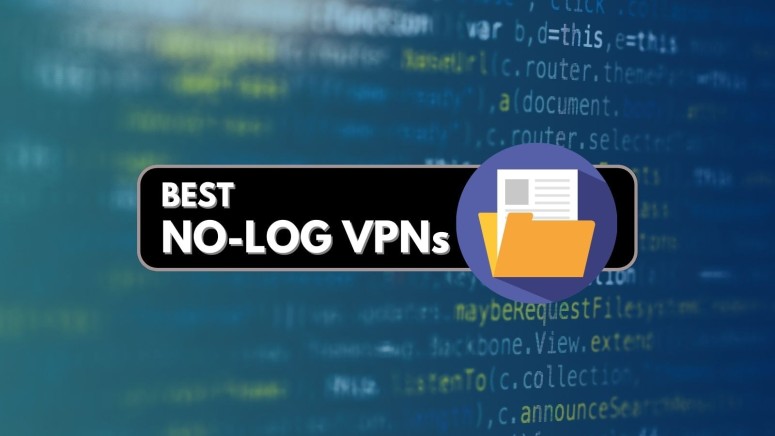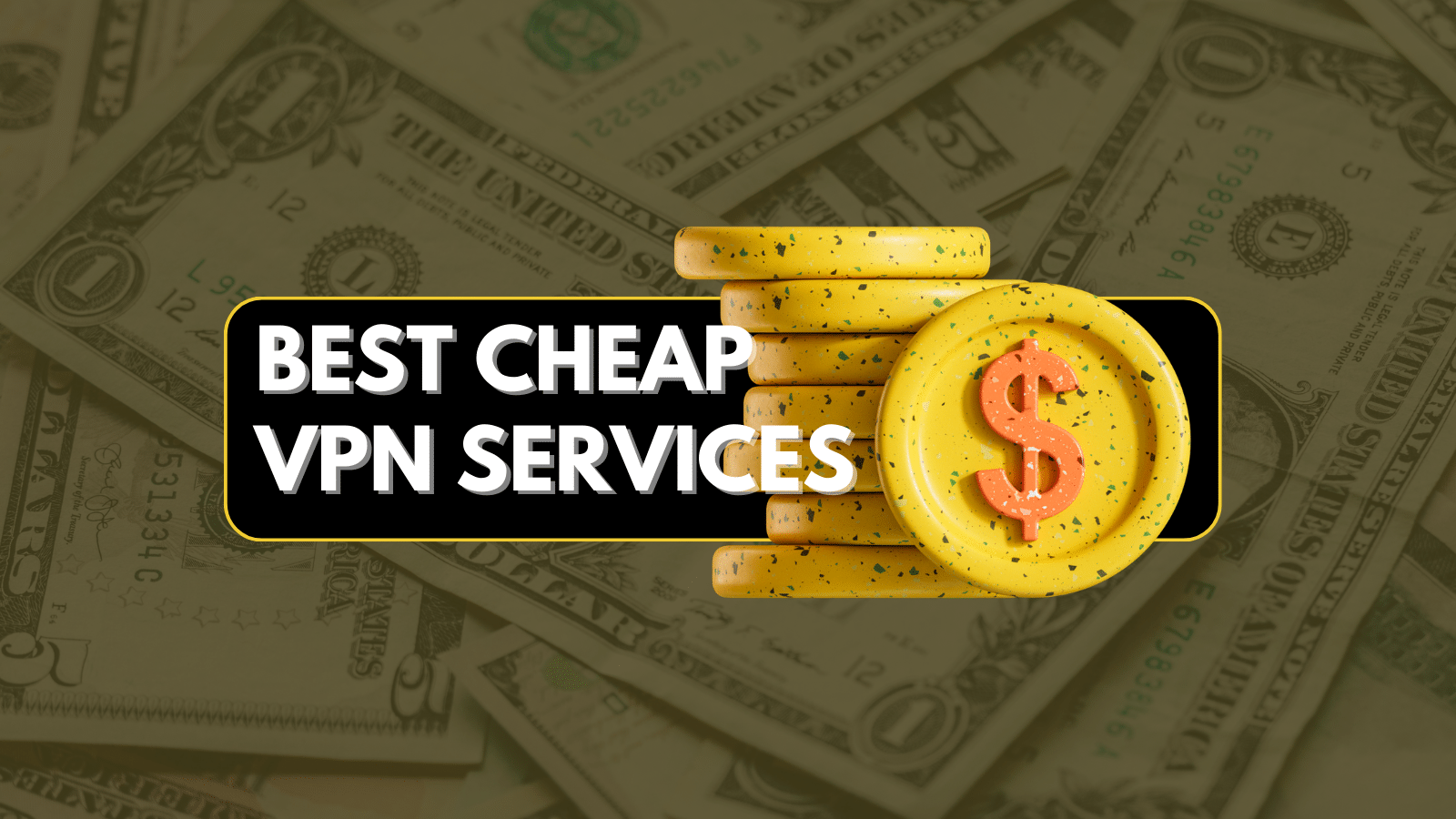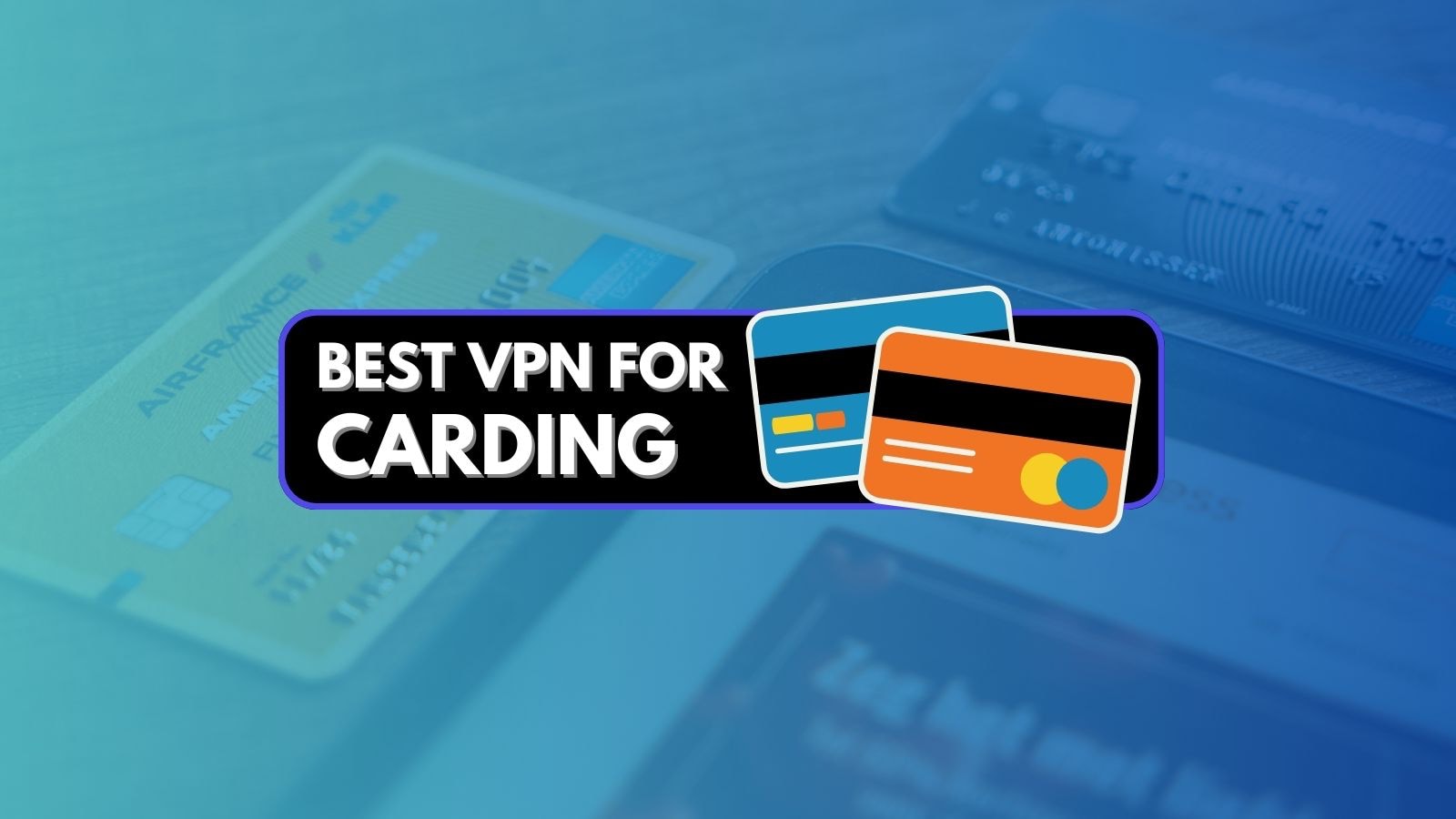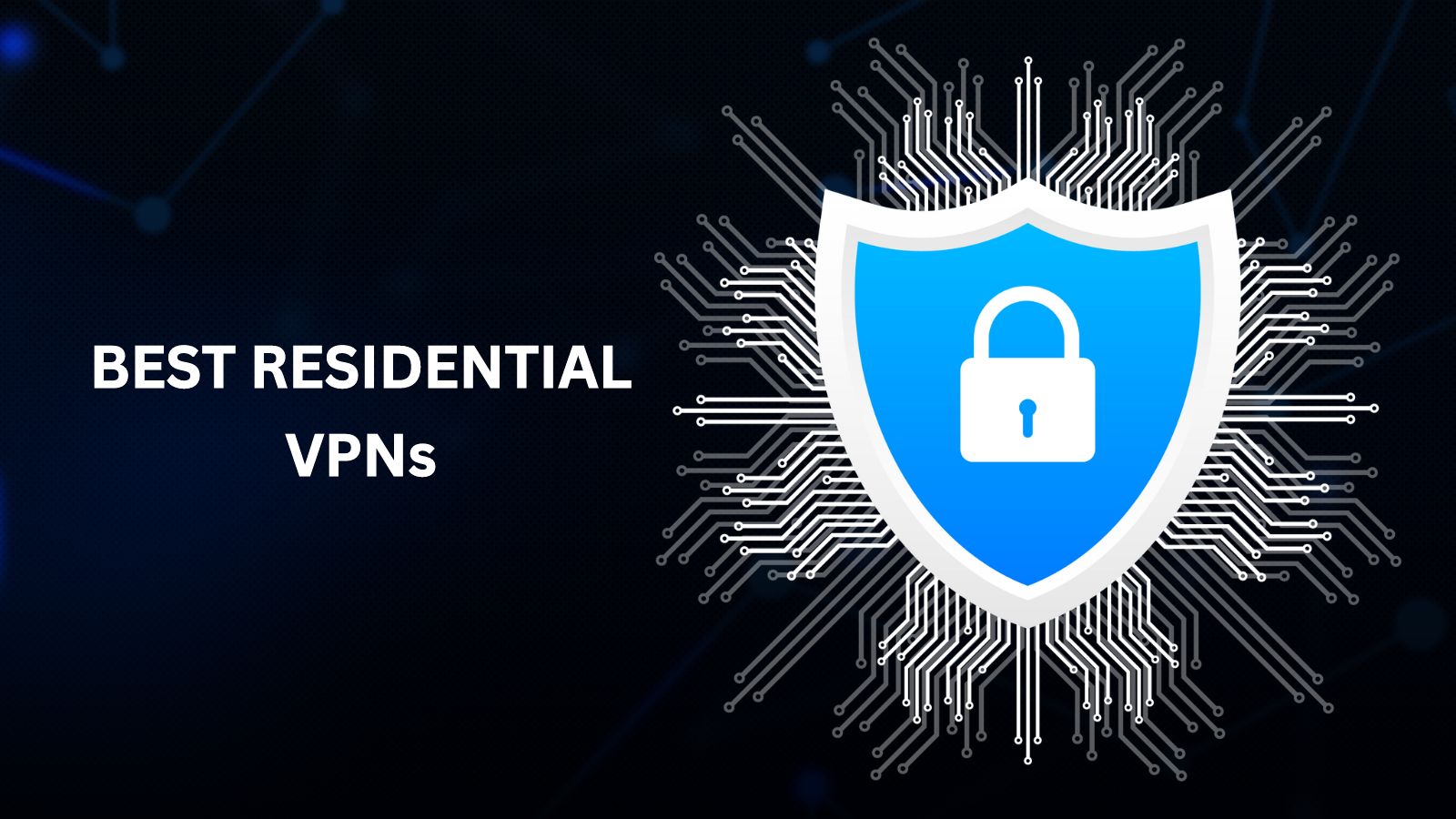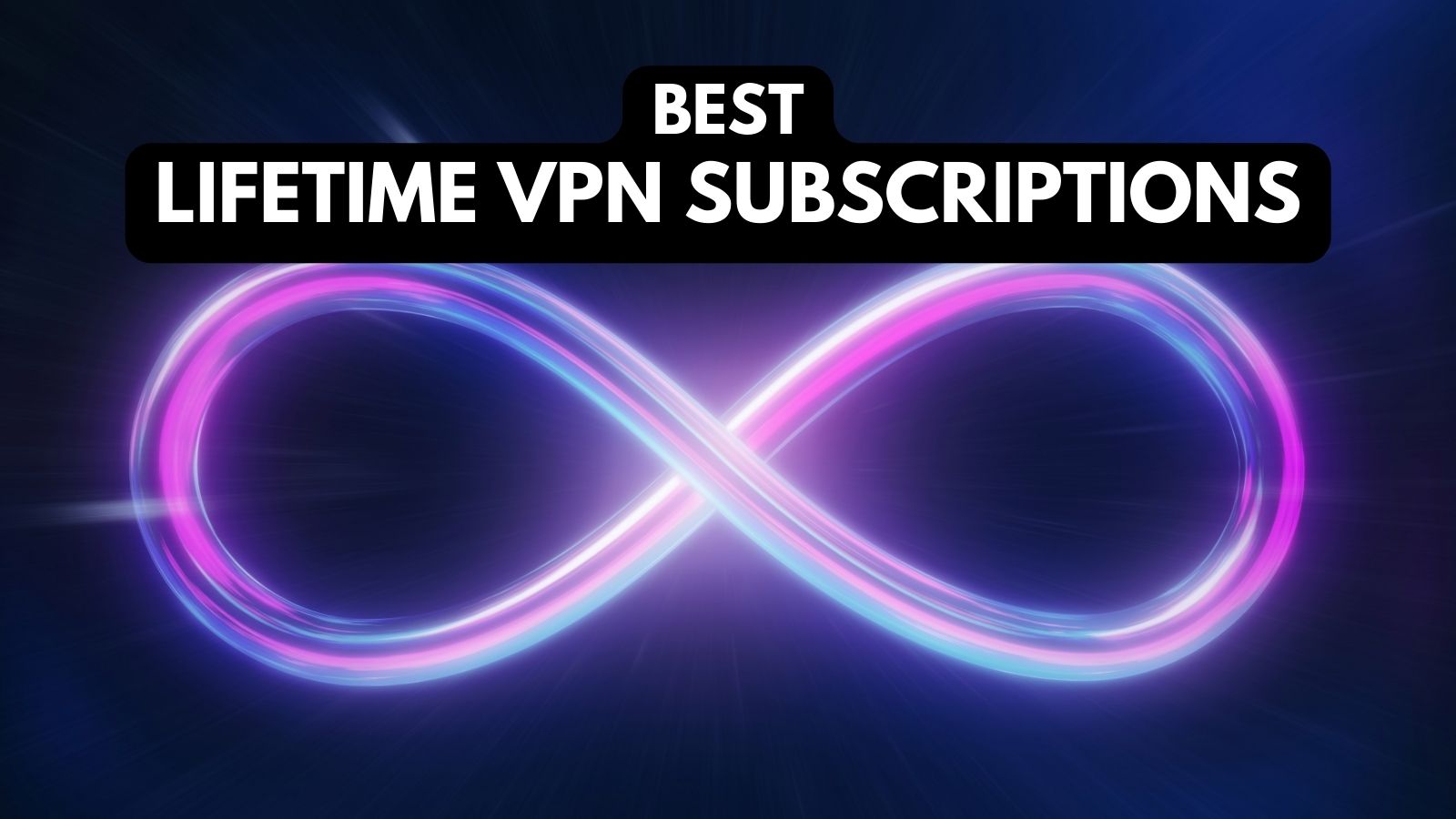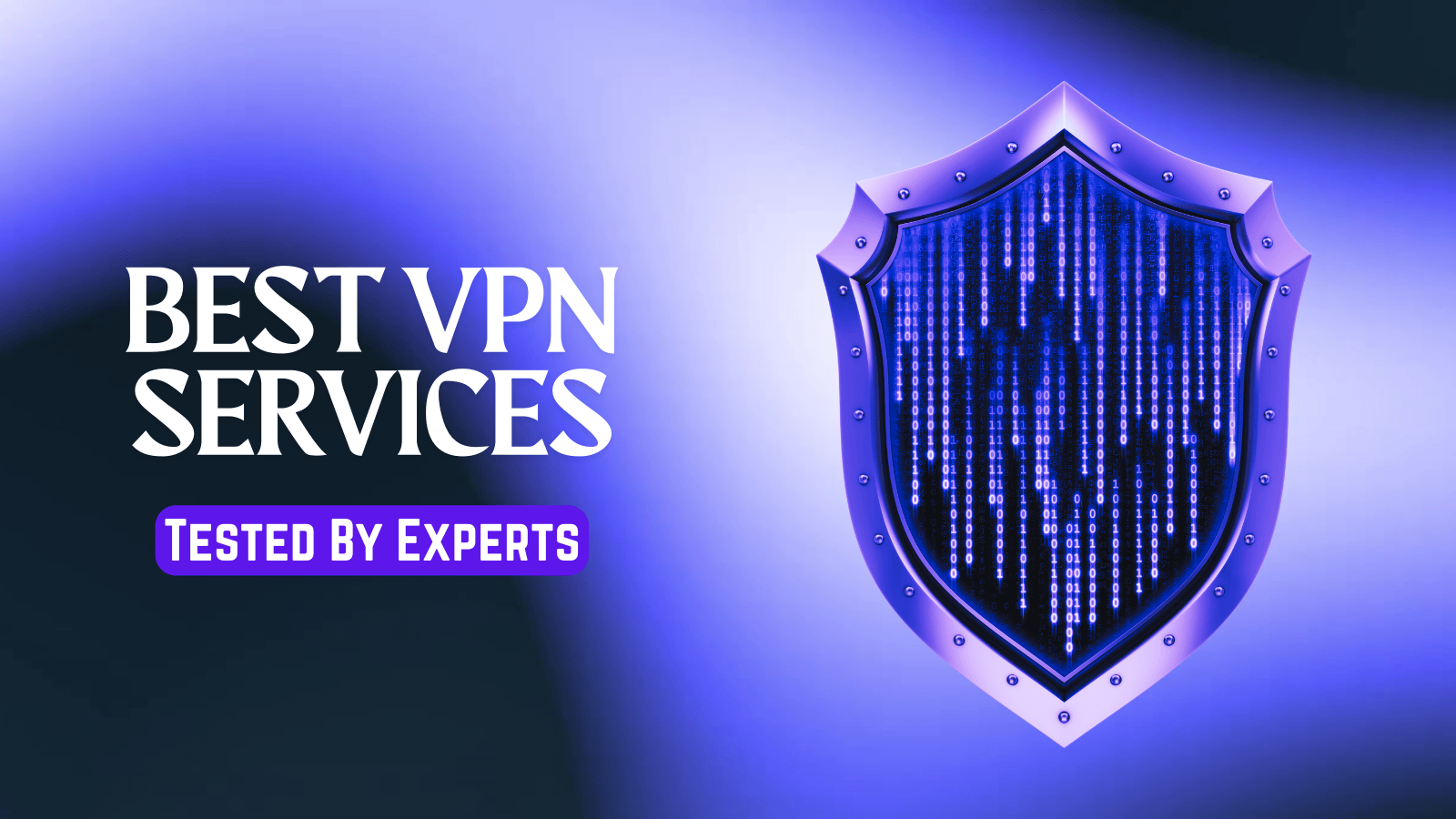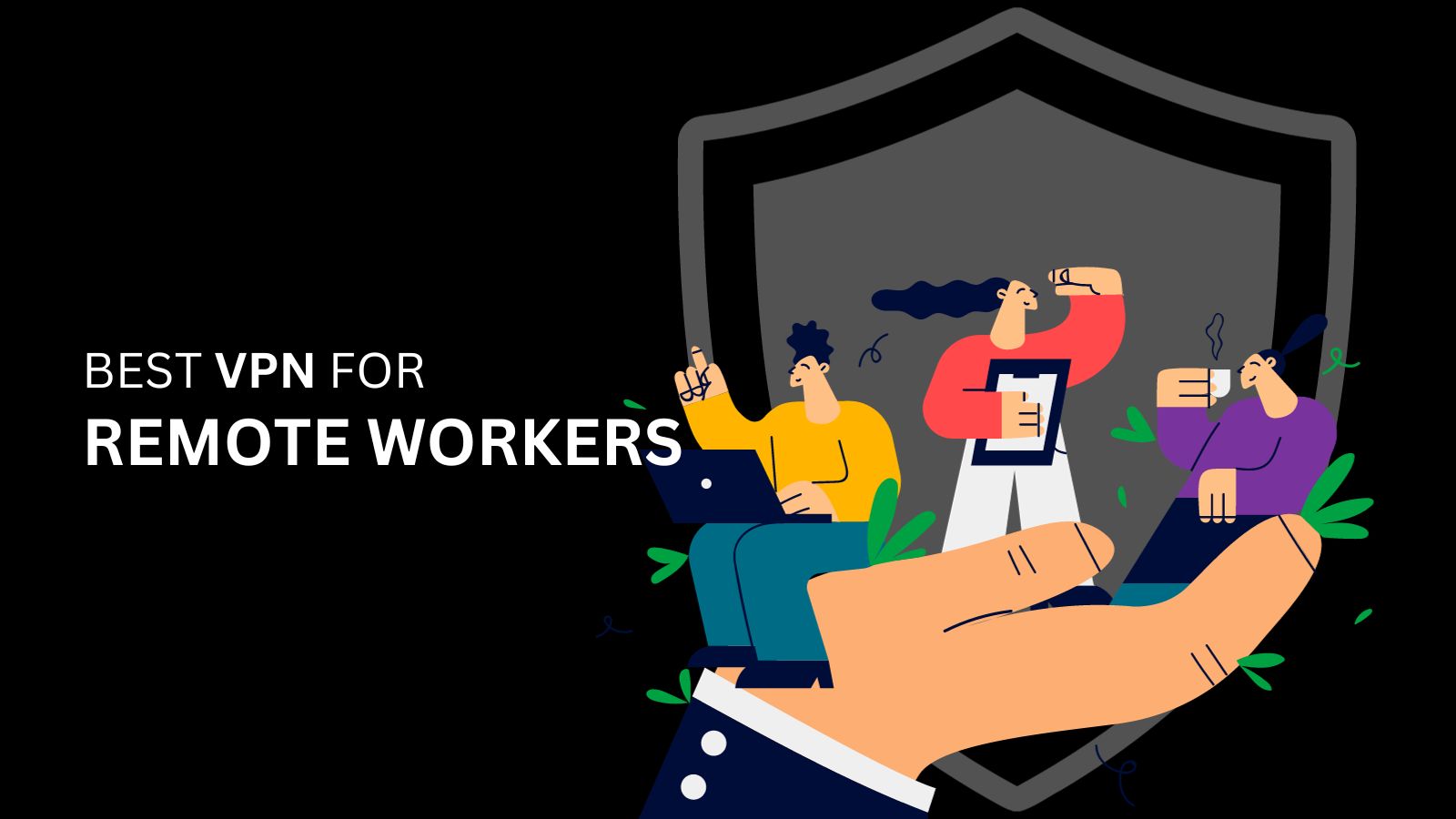When you purchase through links on our site, we may earn an affiliate commission. Here’s how it works.
5 Best No-Log VPNs in 2025 for Anonymous Browsing
Our experts have reviewed 53 VPN providers, which were put through extensive rounds of testing. To learn more about that process, here’s how we review VPNs, where we explain our criteria and our policy of being fully transparent.
Most VPNs claim to follow a no-logs policy. However, few can prove their no-logs claims, and some even do the opposite by creating vulnerabilities that exploit your privacy. So, the question is - how do you pick a trustworthy VPN that sticks to its zero-log policy? Are there VPNs that actually refuse to log your data?
As you'll soon see, finding the best anonymous VPN requires you to dive deep into its privacy policy, which is tedious and time-consuming. You’ll be happy to know that we did the hard work for you, and we’re ready to present the most trustworthy and independently audited VPNs that adhere to zero-log policies.
In this guide, we'll discuss the best VPN with a no-logs policy and show you how to get one. We'll then explain why you need a no-logs VPN, how to choose the best option, what a zero-log VPN is, and the types of VPN logs. We'll finish with a round of often-asked questions on the topic.
Best No-Log VPNs – Our Shortlist
- NordVPN – Our #1-Rated Most Often-Audited No-Log VPN in 2025
- Surfshark – User-Friendly VPN with Minimal Connection Logs
- ExpressVPN – Privacy-First VPN That Collects Aggregated Data Only
- CyberGhost VPN – No PII Data Logged; Only Connection Attempts
- Private Internet Access – User Account Info Logged & Nothing Else
How to Get a No-Log VPN
To get the best no-log VPN, you need to find an independently audited provider, sign up, and install its apps. Then, you can start connecting to servers. Follow these steps:
- Get a VPN with a genuine no-logs policy (we recommend NordVPN).
- Download and install the VPN app on your device(s).
- Open the app and reach its home screen by logging in.
- Pick any VPN server and initialize your VPN session.
- You can now return to your regular Web activities. That’s it!
The Best No-Log VPNs in 2025
Finding the best zero-log VPN means finding an ultra-capable VPN with strong systems that prevent data logging. That said, the most important thing is for the VPN to offer a verified/audited no-logs policy. It must also come from a jurisdiction free of data retention laws and away from the 5/9/15 Eyes Alliance.
Then, your chosen VPN must collect only minimal and anonymized logs. Furthermore, you'll want a VPN with a large number of servers, which should also be RAM-only and support obfuscation. That goes hand-in-hand with strong protocols (OpenVPN, WireGuard) and encryption (AES-256, ChaCha20). Of course, you'll also want fast speeds and stable performance.
Let’s not forget that you need enough simultaneous connections and support for all your devices through native software. Next, ensure there's a reasonable price, plenty of value, and a generous money-back policy, which means you’ll be investing in a VPN risk-free. Lastly, your VPN must also offer 24/7 live chat support, letting you resolve any issue in no time.
Based on the criteria explained above, here are the 5 best VPNs with no logs in 2025:
1. NordVPN – Our #1-Rated Most Often-Audited No-Log VPN in 2025
NordVPN is the best no-log VPN, as it’s built from the ground up to avoid logging any of your sensitive data. It’s based in Panama, which is a privacy-friendly jurisdiction, away from the 5/9/14 Eyes Alliance. On top of that, NordVPN goes through regular audits, proving that its apps, infrastructure, and privacy policy respect your privacy. Let's have a look at each of them.
- 2024 – Audit conducted by Deloitte, confirming NordVPN's strict no-logs policy and commitment to user privacy.
- 2023 – Deloitte re-audited NordVPN, again verifying that no user activity or connection logs are stored.
- 2022 – A third Deloitte audit reaffirmed NordVPN's no-logs stance and privacy infrastructure.
- 2020 – PricewaterhouseCoopers AG Switzerland reviewed and validated NordVPN’s no-logs policy and system architecture.
- 2018 – The first major audit by PricewaterhouseCoopers AG Switzerland, confirming that NordVPN does not track or store user data.
Through all these audits, NordVPN guarantees a strict no-logs policy. In other words, no matter what you do online, that information will never reach NordVPN’s servers. It does collect some basic info, though. More precisely, this provider logs your email address, username, and payment information, which is needed for NordVPN to provide you with access to its services.
This anonymous VPN provides you with 7,400+ servers in 118 countries, and all those servers are RAM-based. Plus, you can also enable obfuscation, available through a group of specialized servers. You'll also find protocols like NordLynx, NordWhisper, IKEv2/IPsec, and OpenVPN and AES-256-GCM and ChaCha20 encryption ciphers.
We can also praise NordVPN's performance, as it's among the fastest VPNs currently available. Whether you plan on browsing, streaming media, or playing online games, this VPN will support you.
Let’s not forget that NordVPN gives you 10 simultaneous connections. There are also nicely designed apps for computers, phones, routers, etc. All that is available at $3.39 per month for 24 months, and you’ll reserve your right to change your mind within 30 days, as per the VPN’s 30-day money-back guarantee. Finally, 24/7 live chat is there, as you’d expect from a capable VPN with a no-logs policy.
PROS
- Recently audited no-logs policy.
- Doesn't collect connection logs.
- RAM-only and obfuscated servers.
- Keeps a bare minimum logged.
- Sizable server network.
- 30-day money-back policy.
- 24/7 live chat support.
CONS
- Pricey monthly subscription plans.
2. Surfshark – User-Friendly VPN with Minimal Connection Logs
Surfshark, based in the Netherlands, is one of the most trustworthy and anonymous VPN providers. That makes it part of the EU, which is known for its strong data protection laws. Aside from that, this VPN was never afraid to go through regular audits, providing full access to third-party auditors. So, when it comes to data logging, there’s nothing to be worried about here.
In total, Surfshark has been audited three times till now. Let's have a look at them:
- January 2023 – You'll be glad to know that Deloitte audited Surfshark's infrastructure, configuration, and policies and concluded that the VPN operates according to the highest privacy and quality standards.
- April 2021 – Surfshark’s entire server infrastructure underwent another successful audit by Cure53, confirming the provider's commitment to secure and transparent operations.
- November 2018 – Surfshark’s Chrome and Firefox browser extensions were independently audited by Cure53, ensuring they met security and privacy standards.
Like other recommendations in this guide, Surfshark collects only anonymized statistics and analytics needed for the VPN to operate. That means your username and e-mail address will be logged, which are used to authenticate your access to Surfshark's servers. This VPN also collects your IP address, which is removed right after you end a session.
With Surfshark, you get access to 3,200+ servers in 100 countries. These are RAM-only servers, and you can also use obfuscation. Aside from that, you get WireGuard, IKEv2, and OpenVPN protocols, AES-256-GCM and ChaCha20 encryption, anti-tracking tools, ad-blocking, and plenty more. There's also a patent for a new type of encryption that reduces metadata exposure.
This VPN also performs quite well. It's an extra-fast VPN that maintains steady performance across all nearby and remote servers, making it suitable for practically any use.
You’ll also get unlimited simultaneous connections in addition to modern-looking apps for a vast range of devices and platforms. A subscription to this VPN comes priced at $2.19 per month for 24 months, and there's also a 30-day money-back guarantee. Of course, 24/7 live chat support is available as well.
PROS
- Regular independent audits.
- No bandwidth logs.
- Servers in 100 countries.
- Bare minimum information logged.
- Unlimited simultaneous connections.
- 30-day money-back policy.
- 24/7 live chat support.
CONS
- Can take a while to connect.
- Collects your IP but only briefly.
3. ExpressVPN – Privacy-First VPN That Collects Aggregated Data Only
ExpressVPN is among the best private VPNs, featuring an audited no-log policy that’s been reviewed many times in the past. It’s headquartered in the British Virgin Islands, which means it’s away from the 5/9/14 Eyes Alliance, and it’s not subject to any mandatory data retention laws.
This VPN undergoes regular audits, the latest of which was conducted in December 2023, when KPMG examined its logging practices. So far, there have been three audits in total:
- 2023 – KPMG audited the service, verifying its privacy policy claims.
- 2022 – KPMG and Cure53 conducted audits, confirming strong security and privacy measures.
- 2019 – PricewaterhouseCoopers (PwC) completed an audit, validating all ExpressVPN servers are protected.
This is a true no-logs VPN, as it will never collect your IP address, browsing history, DNS queries, or traffic destination. That means even ExpressVPN won’t know what you do online. And if a third party comes for your data, the VPN won’t have anything to hand over. That said, ExpressVPN collects the information about the apps and app versions you've installed, the dates you connect to the VPN, and the total amount of data you transfer. None of that data can be tied to your account specifically.
You’ll also get an undisclosed number of servers in 105 countries. All those servers are RAM-only (no hard drives used in data centers), and they’re all obfuscated. In terms of your privacy protection, this VPN uses OpenVPN, Lightway, and IKEv2, paired with AES-256 and ChaCha20/Poly1305 encryption. So, you can rest assured that your private data can never be intercepted by any third party.
You can also expect extra-fast performance, especially if you use the VPN's Lightway Turbo protocol, which is one of ExpressVPN's trademarks. Even its remote servers work great, introducing barely noticeable throttling.
ExpressVPN gives you 8 simultaneous connections, and it works on practically any device imaginable. It's priced at $4.99 per month for 24 months, and there's a 30-day money-back guarantee, in addition to 24/7 live chat support, which is just one of the many support channels this VPN offers.
PROS
- Regularly audited no-log policy.
- Focuses on aggregated data logging.
- Based in the British Virgin Islands.
- High-end privacy protections.
- Extra-fast performance.
- 30-day money-back policy.
- 24/7 live chat support
CONS
- Not the most affordable option.
- Logs aggregated data (no personally identifiable information).
4. CyberGhost VPN – No PII Data Logged; Only Connection Attempts
CyberGhost is a Romania-based VPN provider known for its transparency. This is a zero-log VPN with a recently done audit, which was focused on the VPN’s infrastructure and privacy policy. It’s away from the 5/9/14 Eyes Alliance, and your data is governed by the EU’s GDPR rules, which allows CyberGhost to maintain its no-log policy.
CyberGhost's most recent audit was done in January 2024. Deloitte was in charge of checking the VPN's 'privacy by design' principles. The conclusion was that CyberGhost truly is a no-logs VPN provider, collecting no personally identifiable information. So far, CyberGhost has gone through two independent audits in total:
- 2024 – CyberGhost completed an independent audit by Deloitte, confirming its updated infrastructure and reinforcing its commitment to user privacy.
- 2022 – CyberGhost underwent its first audit by Deloitte, verifying its no-logs policy.
As per its privacy policy, this VPN doesn’t store your connection logs, payment information, browsing history, data content, or anything else related to your privacy. It logs your account information (your username and basic billing information), the frequency of use, and your successful/unsuccessful connection attempts (for diagnostic purposes). Also, this VPN publishes quarterly transparency reports, showing that it doesn't cooperate with law enforcement agencies
Another great thing about CyberGhost is its server network, as it offers an undisclosed number of servers in 100 countries. Those are RAM-only servers, but they don’t provide obfuscation. That means we don’t recommend CyberGhost for those in overly strict countries where censorship is involved. On the other hand, you’ll get OpenVPN, IKEv2, and WireGuard and AES-256-GCM and ChaCha20 encryption.
CyberGhost offers medium-fast performance. Since there aren't many options to optimize that, it would help to have a fast baseline connection.
You can count on up to 7 simultaneous connections with this VPN. There are also very simple-to-use apps for a huge range of platforms and devices. You can get started at $2.19 per month for 24 months, and there's also a 45-day money-back guarantee. Lastly, 24/7 live chat customer support is on board as well.
PROS
- Recently audited VPN provider.
- No bandwidth information logged.
- Basic connection logs only.
- Trustworthy and reputable.
- Suitable for beginners.
- 45-day money-back policy.
- 24/7 live chat support.
CONS
- No obfuscation.
- Not the fastest option.
5. Private Internet Access – User Account Info Logged & Nothing Else
Private Internet Access is based in the United States, which is one of the founding members of the 5/9/14 Eyes Alliance. However, this is one of the rare VPNs to have proven its no-logs policy in court – twice. So, it’s among the most private VPNs out there, without a doubt.
PIA's latest audit was done in April 2024, when Deloitte inspected its server network and management systems. The audit confirmed that PIA's servers are not designed to identify users or pinpoint their activities, so we're talking about a true zero-logs VPN here. There have been two audits so far:
- 2024 – PIA underwent its second Deloitte audit, confirming its strong commitment to user privacy.
- 2022 – A previous Deloitte audit verified PIA's no-logs claims, ensuring no user activity or connection data is stored.
Thanks to its strict no-logs policy, it doesn’t log your browsing history, IP, timestamps, DNS queries, or any other personally identifiable information. It only logs the bare minimum to provide its services, which includes your account and billing information. On top of that, this is a recently audited VPN with open-source software, which is a rare thing to see these days.
You’ll get an undisclosed number of servers in 91 countries, as well as RAM-only servers with obfuscation. There are protocols like WireGuard, OpenVPN, and IPsec (IKEv2), in addition to AES-128-GCM, AES-256-GCM, AES-128-CBC, AES-256-CBC, and ChaCha20 encryption. You can fine-tune just about anything related to PIA, which makes it an amazing pick for more experienced VPN users.
Out of the box, PIA delivers medium-fast performance. However, it offers plenty of fine-tuning. So, more advanced users can optimize this VPN if they prioritize performance.
PIA gives you unlimited simultaneous connections. There are also polished applications for computers, phones, tablets, routers, and more. It's priced at $2.19 per month for 24 months, and to prove that it has nothing to hide, this zero-log VPN offers a 30-day money-back guarantee. Should you ever need help, you can count on PIA’s 24/7 live chat support.
PROS
- Independently audited no-logs policy.
- Collects account information only.
- No connection or bandwidth logs.
- Unlimited simultaneous connections.
- Highly customizable features.
- 30-day money-back policy.
- 24/7 live chat support.
CONS
- Requires some fine-tuning.
- Slower than its competitors.
Why Should You Use a VPN That Doesn’t Keep Logs?
You should use a no-log VPN to preserve your privacy and ensure no one tracks you online, not even your VPN. Here’s more information on what a zero-log VPN can do:
- Hide What You Do Online: The best no-logs VPN will encrypt your data, allowing for anonymous browsing, where even your Internet provider won't know what you do online. There are some no-log VPNs that share data with governments, which makes an audited no-logs policy crucial.
- Hide Your IP Address: When you connect to a VPN server, your device will get a new IP, which means you’ll hide your existing IP and, thus, hide your location online.
- Visit Geo-Blocked Websites: With a foreign IP address, you’ll get to visit the websites available in that specific territory, which means you’ll bypass geo-blocks.
- Bypass Censorship: If you’re in a country with heavy censorship, a no-logs VPN with obfuscation will allow you to unblock restricted websites without anyone knowing.
- Bypass School/Office Restrictions: If you can’t browse your favorite sites while at school or work, a VPN suitable for school and college students will lift those restrictions with no issues.
- Secure Torrent Downloads: When torrenting, it’s crucial to use a zero-log VPN, as you’ll want to avoid receiving copyright infringement notices and paying hefty fines.
- Connect Safely on Public Wi-Fi: With an active VPN session, even highly unsecured public Wi-Fi networks become safe to use, with no risk of data logging.
How to Choose the Best Anonymous VPN?
Finding a reliable no-log VPN requires you to check for independent audits, which is a great way for VPNs to prove their no-logs claims. You also need to check the VPN’s jurisdiction, server information, privacy and security features, and more. Let’s explain:
- Audited No-Log Policy: The best way to ensure you’re getting a no-logs VPN is to check for independent audits. Those documents should be available publicly.
- Favorable Jurisdiction: Go for a VPN outside the 5/9/14 Eyes Alliance. The best no-log VPN should come from a country without mandatory data retention laws.
- Minimal Data Logging: There’s no VPN that collects zero data. That said, pick a VPN that logs anonymized information only related to statistics and analytics.
- Sizable Server Fleet: The best way to ensure smooth and stable performance is to pick a zero-log VPN that has thousands of servers in as many countries as possible.
- RAM-Only Servers: Aside from audits, RAM-only servers are the best way to ensure that your VPN won’t log your information (as hard drives are not used).
- Privacy & Security Features: Never use anything less than OpenVPN and WireGuard, which are the best VPN protocols for privacy. Also, pay attention to encryption.
- Performance and Speed: Ensure that your chosen VPN won't slow you down, and get a VPN known for offering minimal throttling and implementing performance optimizations.
- Simultaneous Connections: Most VPNs allow 5 to 8 simultaneous connections, so make sure to know how many devices you’ll need to cover in your household.
- Supported Devices: Avoid VPNs that ask for manual configuration. Instead, pick one that has native apps for your computer, phone, tablet, streaming device, and more.
- Pricing and Value: Even a high-end VPN doesn't have to cost much. We recommend getting a long-term plan, which is how you'll get the best VPN deals.
- Money-Back Guarantees: Buying a VPN subscription doesn’t have to be a risky purchase. The best no-log VPN should give you at least 30 days to ask for a refund.
- Customer Support: We hope you won’t encounter any issues with your VPN. However, you’ll want to have access to 24/7 live chat support in case of a problem.
What Is a Zero-Log VPN?
A zero-log VPN is a VPN service that doesn’t collect any personally identifiable information. That means we’re talking about a VPN that doesn’t know what you do online.
However, keep in mind that zero-log VPNs are quite rare. Most VPNs collect some information, and that can even include your IP address and your Web browsing history, which beats the purpose of using a VPN in the first place.
That said, even the best VPN for anonymity will still collect some analytics and statistics needed for those VPNs to operate and provide their services. However, those types of data are anonymized and never tied to your VPN account in any way or form.
Types of VPN Logs
There are three distinctive types of VPN logs: activity logs, connection logs, and personally identifiable logs. Let’s give you more information about each.
Which Free VPNs Have a No-Log Policy?
There are no free VPNs that have a true no-logs policy. That’s because free VPNs earn money by exploiting your privacy and collecting your sensitive information. In other words, there’s no such thing as a free no-log VPN.
More precisely, free VPNs know what you do online. They can see your browsing history, the files that you downloaded, and what you read, streamed, or played online. That information is highly important to marketing agencies, willing to pay a lot of money.
On top of that, free VPNs come with limited bandwidth and performance, and they typically have only a handful of servers. Aside from that, free VPNs have limited simultaneous connections and limited features, and we've also seen some bundle malware.
A better option is to go with a free VPN trial, allowing you to access premium VPN features and a no-logs policy without any risk. More precisely, NordVPN's free trial lasts for 7 days and can be activated on Android, while other supported devices get to rely on a 30-day money-back guarantee.
We’ll remind you that even when it comes to premium VPNs, very few of them are no-log VPNs with an audit to prove their claims. So, do your research carefully, and once you've gone through a couple of trials, pick the best VPN that won’t break your trust.
Final Thoughts
By now, you’re aware that most no-log VPNs are not what they appear to be. However, with a little bit of effort, you’ll manage to find a zero-log VPN whose primary focus is the privacy and security of its subscribers. That said, true no-log VPNs refuse to collect any data other than what’s absolutely required for their services to function, and independent audits back their claims.
We recommend NordVPN as the best no-log VPN in 2025, as it collects no personally identifiable information while managing to provide top-shelf service. It’s great for privacy protection and lets you do more on the Web without exposing sensitive information. More importantly, NordVPN goes through regular audits to show its dedication to being a privacy-first VPN.
Regarding other options, Surfshark is a privacy-friendly VPN with many extra features. ExpressVPN focuses on privacy and data obfuscation, while CyberGhost is a no-logs VPN with specialized servers for various online activities. Lastly, we also have PIA, which seems excellent for more advanced users.
That’s all for our list of the best no-log VPN services. If you have any questions, let us know via the comments section below. Thank you for reading!


